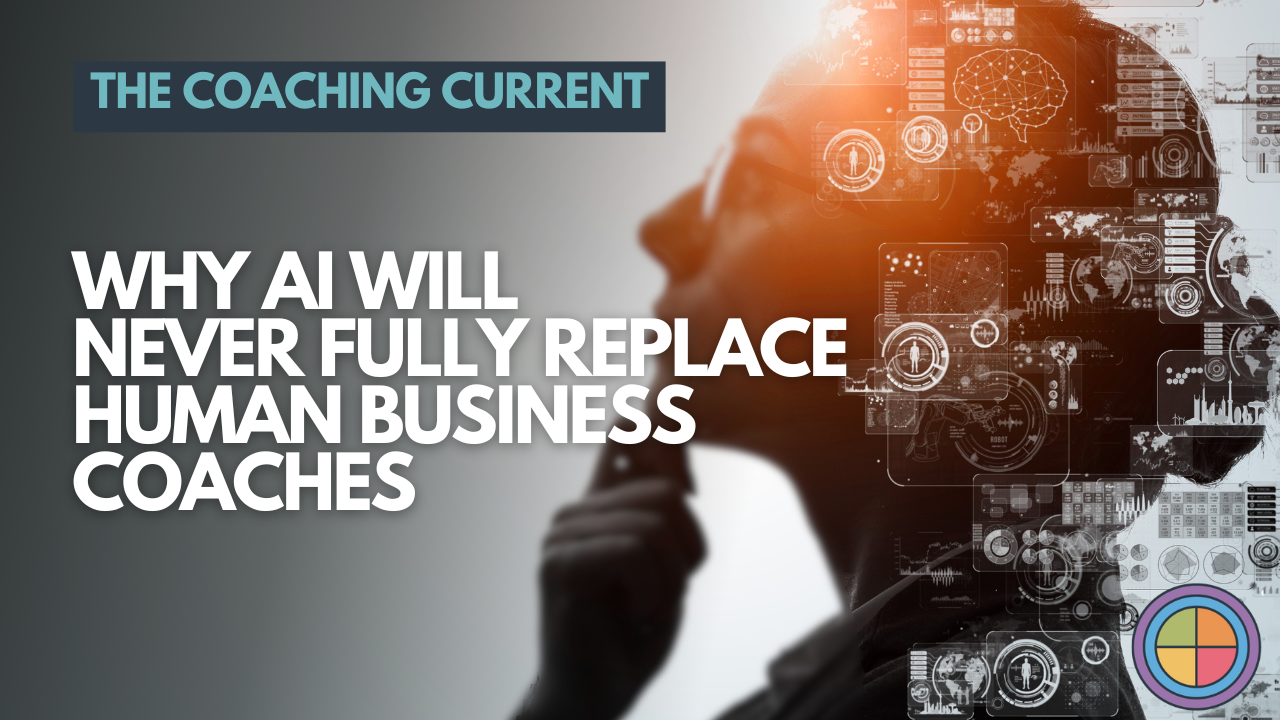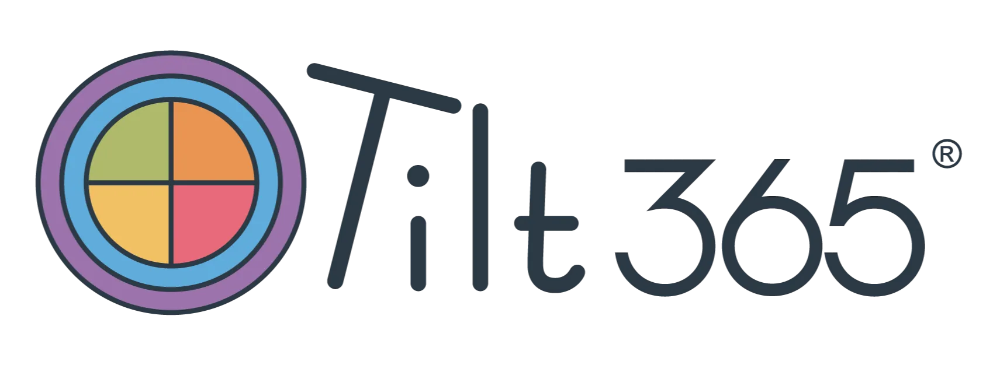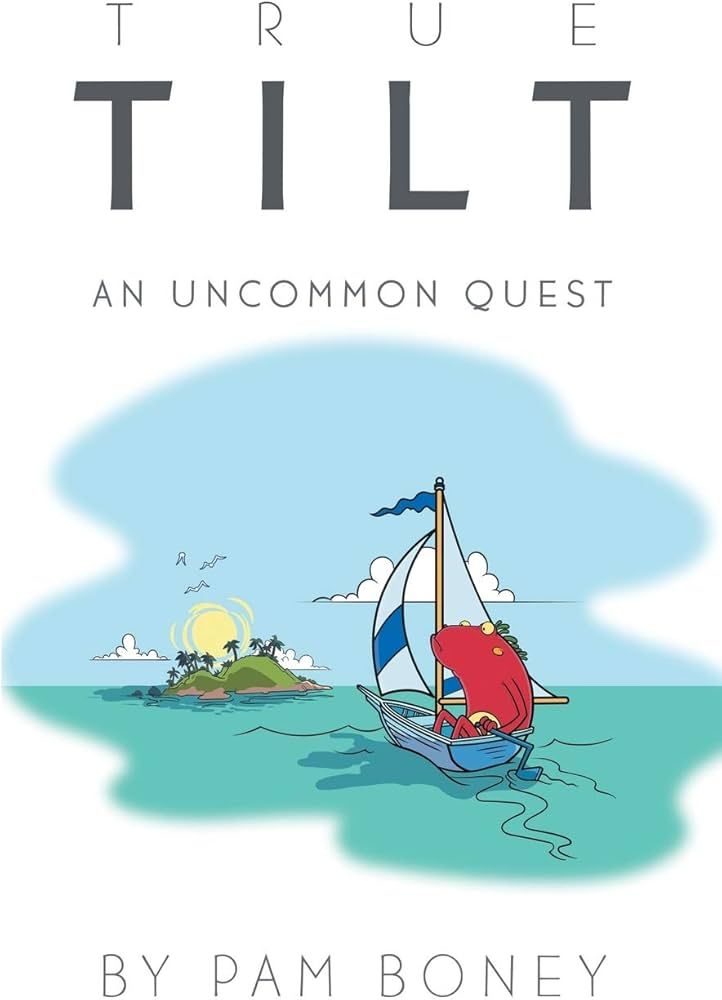Why AI Will Never Fully Replace Human Business Coaches
Nov 04, 2025
AI is a hot topic in general right now, and coaching is certainly one application where the impact of AI is not yet fully understood. As an experiment, I asked Claude.ai to write an article about why AI will never fully replace humans in business coaching while referencing Tilt 365… the rest of this article is the result (with a very few edits). Enjoy!
The Irreplaceable Human Elements of Coaching
Genuine Presence and Authentic Connection
The ICF core competency of "maintaining presence" requires something AI can never truly provide: authentic human connection. When a client shares a vulnerable moment about a failing business relationship or a crisis of confidence in their leadership, they need to feel genuinely seen and understood by another human being who has experienced the full spectrum of human emotion.
AI can simulate empathy through sophisticated language processing. It can say, "That sounds difficult" at appropriate moments. But it cannot feel the weight of someone's struggle, cannot sit in uncomfortable silence with authentic compassion, and cannot transmit the unspoken message: "I'm here with you, and you're not alone." Clients intuitively sense this difference, and it matters profoundly in the moments that create breakthrough.
Character Strengths and Fear-Based Patterns: Where Human Wisdom Is Essential
This is where frameworks like Tilt 365 reveal why human coaches are irreplaceable. Unlike traditional personality assessments that profile people into fixed types, Tilt 365 operates on the principle that personalities evolve over time in response to changing contexts and can be trained to be self-regulated and agile. This dynamic, developmental approach requires the kind of nuanced interpretation that only a skilled human coach can provide. The development journey requires human accompaniment.
Consider a client whose Tilt 365 assessment reveals that their dominant strength—perhaps analytical thinking or results-orientation—has become overused to the point of being a derailer. AI might identify the pattern from the data. But only a human coach can:
- Navigate the identity-level work that Tilt's ICF-accredited laser coaching framework addresses, swiftly identifying clients' opportunities and derailers at the identity level
- Recognize the subtle fear underneath the overused strength (perhaps fear of appearing incompetent or fear of losing control)
- Be with the emotional resistance that emerges when someone realizes their greatest strength has become their biggest obstacle
- Guide the "intentional tilting" toward underused character strengths in a way that honors the client's readiness and pace
- Sense when to push and when to pause based on micro-expressions, energy shifts, and the trust built through relationship
Navigating Complexity and Ethical Territory
Real coaching often enters gray areas where judgment, ethics, and human values intersect. Consider these scenarios:
- A client's Tilt profile reveals strengths they want to develop, but their goal conflicts with their deeper values or identity
- A client is using the framework to justify behavior that's harmful to others ("That's just my natural pattern")
- A client's struggles point to trauma or mental health issues that require referral to therapy
- A cultural context makes certain Tilt interpretations inappropriate or harmful
These situations require human wisdom, ethical training, and professional accountability that AI cannot provide. ICF-certified coaches draw on ethical frameworks, supervision, and years of experience navigating complexity to make sound judgments in real-time.
The Social-Emotional Dynamics of Accountability
One of the least discussed but most powerful aspects of coaching is social accountability. Clients stay committed to developing new patterns—to "tilting" intentionally rather than defaulting to habitual strengths—partly because they don't want to disappoint someone who believes in them. This social-emotional dynamic is wired into human psychology in ways that don't transfer to AI interactions.
When a client says, "I worked on accessing my compassion this week, even when my analytical side wanted to just solve everyone's problems," they're not just reporting progress—they're strengthening the relationship that motivates continued growth. The coach's genuine delight in their client's development creates a positive feedback loop that drives sustained behavior change.
The question isn't whether AI will change coaching. It already has. The real question is: How will we use AI to become even better at the deeply human work of helping people grow into their full potential?
Learn more about Laser Agility Coaching
Written By Katherine Gilliland, PCC
Stay connected with news and updates!
Join our mailing list to receive the latest news and updates from our team.
Don't worry, your information will not be shared.
We hate SPAM. We will never sell your information, for any reason.


